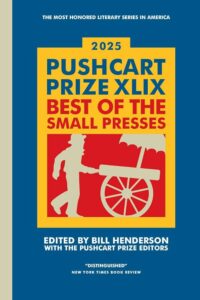
I’ve written about Goodreads’ Book Giveaways before. To say the least, I have ambivalent feelings. On the one hand, they’re good publicity for the little guy (read: humble author) who’s lost in a big jungle (read: the published world). On the other hand, the odds of winning (meaning you) are longer than a certain island off the Connecticut coast, and the odds of garnering a review (meaning me) are wider than a certain mouth in the White House.
In any event, for the third go-round, The Indifferent World, is now available as a Goodreads Giveaway until June 9th. Yes, you could win a signed first (and no-doubt last) edition for free, and yes, you could get hit by lightning (unsigned, I’m guessing), but that’s why Hope waited til last to slip out of Pandora’s box. It’s also why you might just enter your name.
I’m rooting for you, trust me. The fact that you’re reading this post tells me you’re a fan of poetry’s, or at the very least, a fan of writing’s. That means you’ll probably actually read the book if you win. It also means you’ll be kind enough to write a review.
If I could fix the damn giveaway, I would. This is the Age of Authoritarians, after all, so one can dream about silver linings that work in one’s favor, no? The past three GR Giveaway books I’ve mailed into the world, suitcases packed with destination stickers, have disappeared into a void. Nothing but nothing in response! Just Simon & Garfunkel’s dreaded “Sound of Silence” (cue melancholy disc jockey).
Those books, I fear, were snapped up by the Freebie Junkies, the professional Goodreads Giveaway people who have 398,875,193 books on their “To-Read” shelves and 0 books on their “Reviews” shelf.
But, no. This time–perhaps the last time–I have faith. And, as the New York Times has failed to publish this version of the “Tell Us 5 Things About Your Book” series, I’ll slip it in here in case free things intrigue you:
When did you first get the idea to write this book?
The idea lies in the first of the book’s four sections, titled “Woods & Lake.” This suite of poems was inspired by my years on a Maine lake where time seems to have stopped because not much has changed there since the Eisenhower Administration. Were he alive, even Thoreau would be at home there. (Thoreau gets a cameo in one of the poems, by the way).
What’s the most surprising thing you learned while writing it?
By God, I can write poetry! Originally, the plan was to write short stories with a long-term plan for working up to novels. In fact, I actually completed a young adult novel in the 90s. The feedback from one New York editor was something to the effect of “wonderful descriptions… it’s the plot that needs attention!” Like my lake surroundings, my prose often took leisurely turns toward lyricism and imagery. Poetry in prose’s clothing, in other words! Coupling that realization with a full-tilt teaching schedule, my shift to the more compact (and challenging) genre was complete.
In what way is the book you wrote different from the book you set out to write?
Some writers start with a master plan, an endgame in sight before the first word is writ. This would not be that book. The Indifferent World evolved as I wrote and rewrote it. Eventually I noticed common themes and grouped the poems accordingly. The four parts are entitled Woods & Lake, Homebodies, Mysteries, and The Indifferent World.
Who is a creative person (not a writer) who has influenced you and your work?
The Estonian composer Arvo Pärt. Most of the book was written to his music. It fit the mood I was trying to create. I wanted the poems to be simple yet thoughtful, something readers could relate to. Like Pärt’s music.
Persuade someone to read “The Indifferent World” in less than 50 words.
The poetry is approachable. It’s also not afraid to break “rules” because, frankly, I was not up on the “rules” when I was writing it. I did not avoid certain words, like (gasp!) “darkness.” I did not avoid certain topics, like dog poems. Instead, I wrote what inspired me, figuring that would inspire readers, too.



